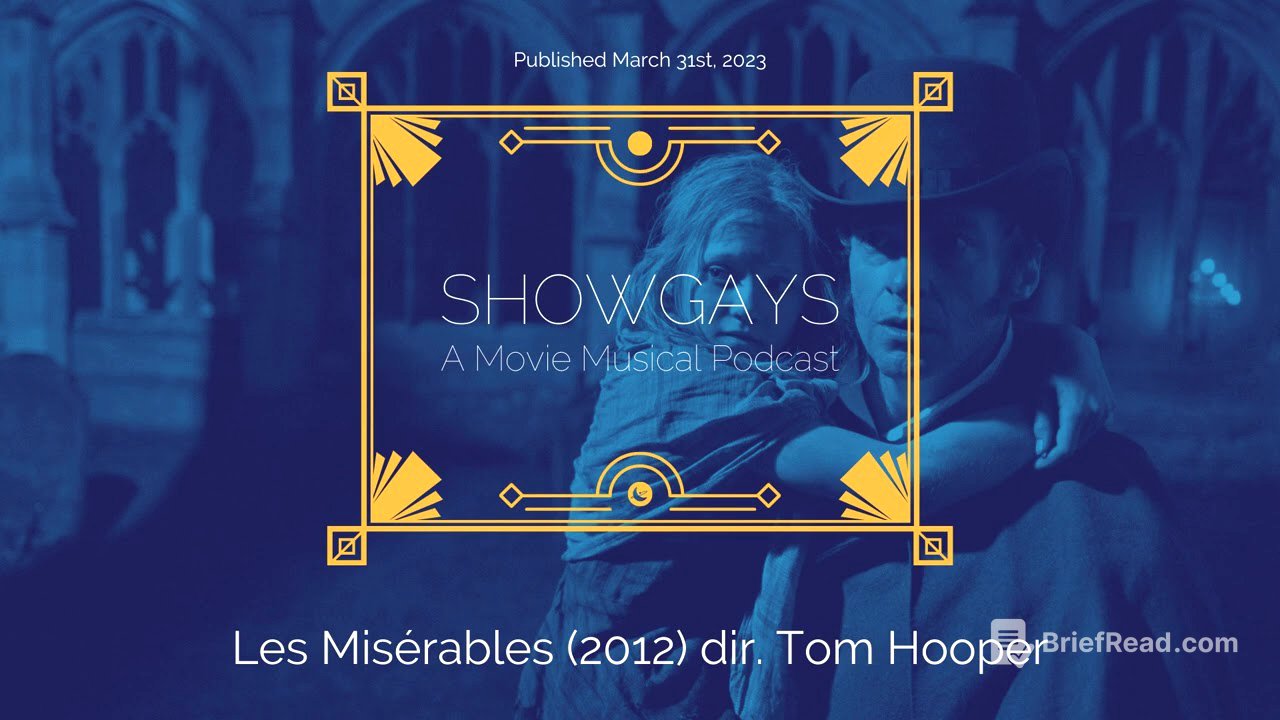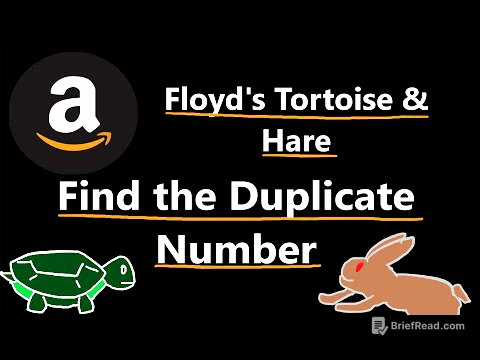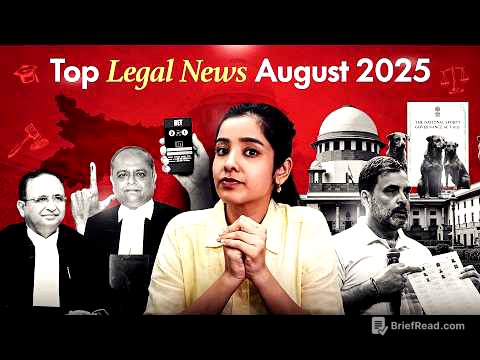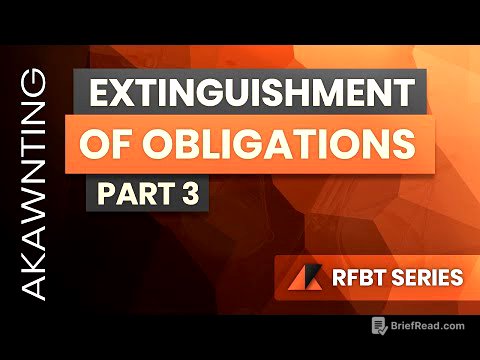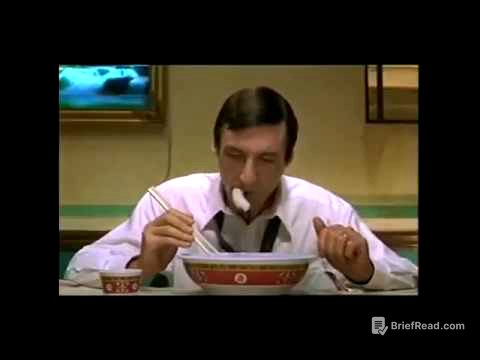TLDR;
This episode of The Ampliverse features a discussion about the movie musical "Les Misérables" (2012). The hosts share their personal histories with the musical, from stage productions to film viewings, and explore the film's production, reception, and themes. They analyze the performances, particularly Anne Hathaway's and Hugh Jackman's, and discuss the film's visual language and its faithfulness to the source material.
- Personal connections to "Les Misérables"
- Analysis of the 2012 film adaptation
- Discussion of performances, themes, and visual elements
- Speculation on a "Clueless"-inspired remake
Intro [0:01]
The episode begins with the hosts acknowledging that they are re-recording this episode due to a file deletion. They humorously instruct each other to act as if they are discussing the movie for the first time.
One Minute Summary Challenge [3:30]
Adam attempts a one-minute summary of "Les Misérables," detailing Jean Valjean's journey from convict to a respected figure, his relationship with Fantine and Cosette, the student uprising, and Javert's crisis of conscience and suicide. He completes the summary in one minute and eighteen seconds.
Personal History with Les Misérables [5:54]
Molly shares her experience being in a high school production of "Les Misérables," where she played Kuferak and was jokingly referred to as the Cosette understudy due to her high vocal range. RJ discusses his familiarity with the musical through Lea Salonga's performances and watching the 25th-anniversary concert in college. Adam recalls seeing the movie multiple times in theaters during its Christmas release.
Fourth Grade Play and College Experiences [12:10]
Molly recounts her role as Eponine in a fourth-grade play adaptation of the Christmas part of "Les Misérables" and attending a Sleep Away Music Theater Camp where she saw the musical. RJ shares his experience of watching the 25th-anniversary concert in college.
Sewer and the Prostitute in Les Misérables [18:29]
Molly shares insights from her article, "The Sewer and the Prostitute in Les Misérables: From Regulation to Redemption," discussing the sewer as a central setting and metaphor in the novel. She explains how Victor Hugo critiques the social order of the 19th century by portraying sex workers not as morally soiled but as victims of social injustice. The discussion touches on the extensive time the characters spend in the sewers in the novel and the theme of finding salvation through descent rather than ascension.
Initial Reception and Musical Adaptation [25:36]
The initial reception of the "Les Misérables" book was mostly negative, with accusations of sentimentality and catering to social issues. However, it was commercially successful and gained popularity outside of France. The musical adaptation, originally released as a concept album, faced negative reviews initially but became a long-running hit in both the West End and Broadway.
The Film Adaptation [32:57]
The hosts discuss the 2012 film adaptation of "Les Misérables," directed by Tom Hooper, noting its financial success but mixed critical reception. They mention the film's cast, including Hugh Jackman, Russell Crowe, and Anne Hathaway, and its awards nominations and wins. The conversation touches on the film's long development history and the various actors who were considered for roles.
Live Vocals and On-Set Conditions [41:18]
The hosts discuss the decision to record the vocals live on set, with the actors using in-ear piano tracks as a guide. They debate the effectiveness of this approach, with some feeling it added to the emotional intensity of the performances, while others found it distracting and detrimental to the vocal quality. The conversation also touches on the challenging on-set conditions, such as Hugh Jackman's decision to dehydrate himself for certain scenes.
Rita's Reaction and Movie's Success [46:19]
The hosts discuss Rita's, Molly's mom, initial reaction to the movie, finding it horrifying. Despite this, Rita acknowledged that the movie kept moving, which was impressive considering its length and the late start time. The hosts also note the movie's box office success, despite their reservations about certain aspects of the film.
Box Office Competition and Hugo's Experience [50:48]
The hosts list the movies that were in theaters when "Les Misérables" was released, including "The Hobbit: An Unexpected Journey" and "Django Unchained." They also mention that Victor Hugo was present in Paris during the revolution, which had a big impact on him and influenced his novel.
Structure and Character Analysis [52:55]
The hosts discuss the structure of the podcast episode, deciding to focus on character-by-character analysis rather than a beat-by-beat plot summary. They begin with Fantine, praising Anne Hathaway's performance and discussing the backlash she received for winning the Oscar.
Anne Hathaway's Performance and Backlash [54:41]
The hosts discuss Anne Hathaway's performance as Fantine, with varying opinions on its quality. Some found it emotionally powerful, while others felt it was strained and overly melodramatic. They also explore the backlash Hathaway received for winning the Oscar, attributing it to her persona at the time and the perception that she was overly eager for recognition.
Cosette's Character Analysis [1:07:22]
The hosts analyze Amanda Seyfried's portrayal of Cosette, describing her as an object of others' affections and praising Seyfried's performance for not taking too much focus. They discuss Cosette's significance in the story, particularly her innocence and the importance of Valjean revealing his past to her. The conversation touches on Cosette's solo song, "In My Life," and her role in the love triangle with Marius and Eponine.
Marius' Character Analysis [1:15:01]
The hosts discuss Eddie Redmayne's portrayal of Marius, with some praising his vocal performance and others finding his vibrato and physical performance distracting. They analyze Marius' relationships with Cosette and Eponine, noting the unrequited nature of Eponine's love. The conversation touches on the songs "Empty Chairs at Empty Tables" and "A Little Fall of Rain," and the emotional impact of Eponine's death in Marius' arms.
Eponine and Gavroche [1:25:19]
The hosts discuss Samantha Barks' performance as Eponine, praising her rendition of "On My Own" but noting that her voice is more pop than they would have preferred. They analyze Eponine's character and her relationship to the revolution, wishing there was more emphasis on her political feelings. The conversation then turns to Gavroche, with the hosts praising the young actor's performance and discussing his role in the story.
The Thénardiers [1:36:25]
The hosts discuss the Thénardiers, praising the casting and performances of Helena Bonham Carter and Sasha Baron Cohen. Some felt that the characters were too gross and wished they had been allowed to be funnier, while others appreciated their comedic relief in the otherwise dark film.
Javert's Character Analysis [1:40:19]
The hosts analyze Russell Crowe's portrayal of Javert, with some finding his performance uninteresting and his singing unremarkable. They discuss Javert's static character and his crisis of conscience, exploring the reasons behind his suicide. The conversation touches on themes of forgiveness, redemption, and the conflict between law and morality.
Javert's Suicide and Themes [1:45:00]
The hosts continue their discussion of Javert's suicide, exploring different interpretations of his motivations. They analyze the lyrics of his suicide song and discuss the Catholic perspective on suicide, as well as themes of guilt, despair, and the inability to reconcile with a world of moral gray. The conversation touches on the symbolism of water and stars in relation to Javert's character.
Jean Valjean's Character Analysis [1:57:58]
The hosts analyze Hugh Jackman's portrayal of Jean Valjean, with some finding his performance strained and overly effortful, while others appreciated his commitment to the role and his portrayal of Valjean's Christ-like qualities. They discuss Valjean's relationship with Cosette and his role as a Christ figure, as well as the significance of bread as a symbol of the body of Christ.
Bring Him Home and Religious Themes [2:03:01]
The hosts discuss the song "Bring Him Home" and its religious themes, with Valjean becoming God and Marius becoming Jesus. They analyze the roles of Fantine and the bishop in Valjean's redemption and discuss the Catholic Church's complex relationship with the story. The conversation touches on Valjean's decision not to join the church and the implausibility of his repeated encounters with Javert.
Critical Reception and Letterboxd Reviews [2:11:18]
The hosts read excerpts from critical reviews of the film, noting criticisms of the visual language, editing, and Jackman's vocal performance. They also share some Letterboxd reviews, highlighting different perspectives on the film's strengths and weaknesses.
MVP and Clueless Version [2:15:48]
The hosts name their MVPs for the movie, with different choices including Anne Hathaway, Sasha Baron Cohen, and Amanda Seyfried. They then brainstorm ideas for a "Clueless"-inspired remake of "Les Misérables," setting it in a 1990s Catholic high school and reimagining the characters and plot elements.
Closer and Next Episode [2:19:39]
Molly shares her closer, a reimagining of "Les Misérables" as a 1990s Catholic high school story. The episode concludes with a song and a preview of the next episode, which will be about the movie "Xanadu."
